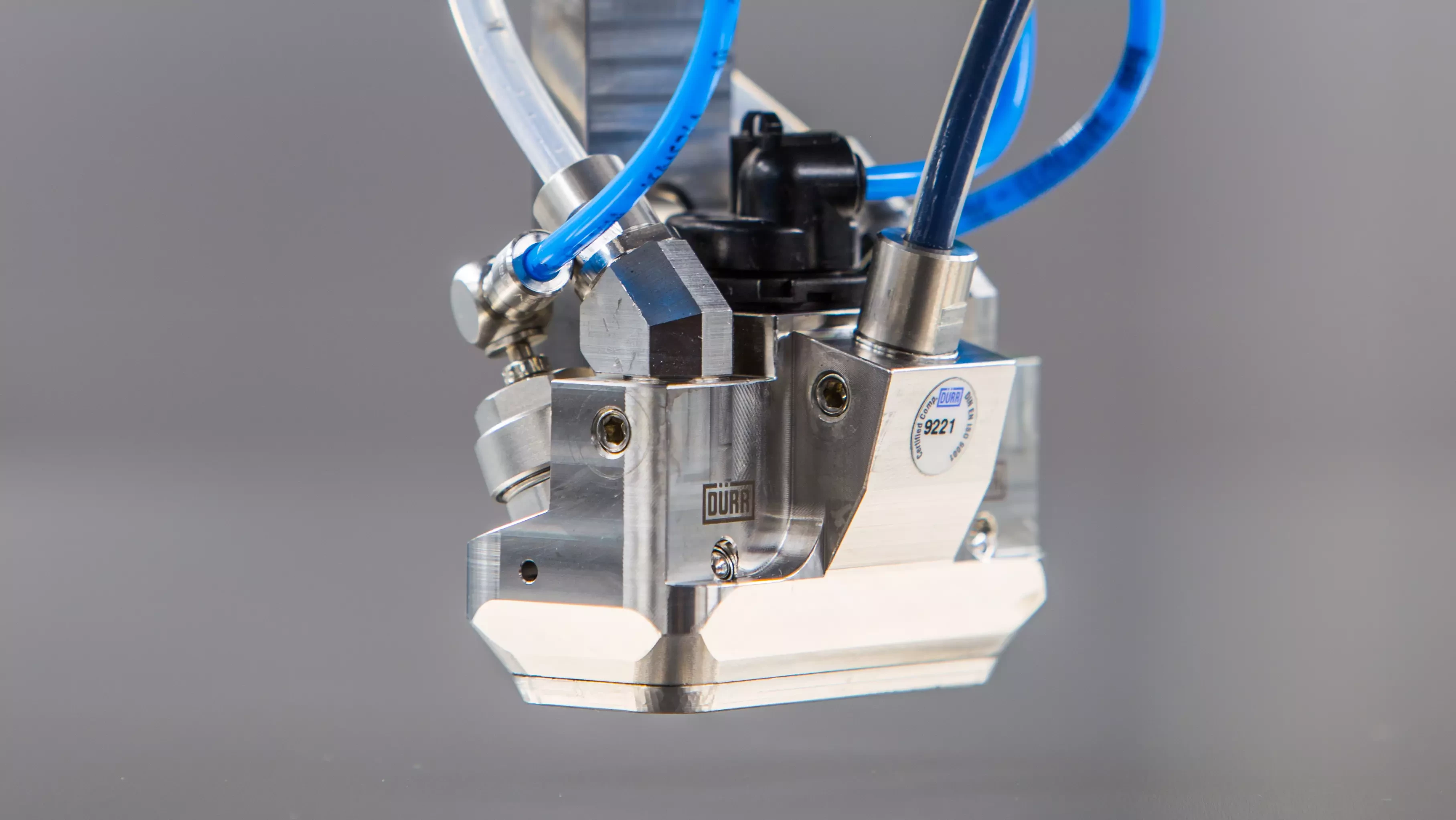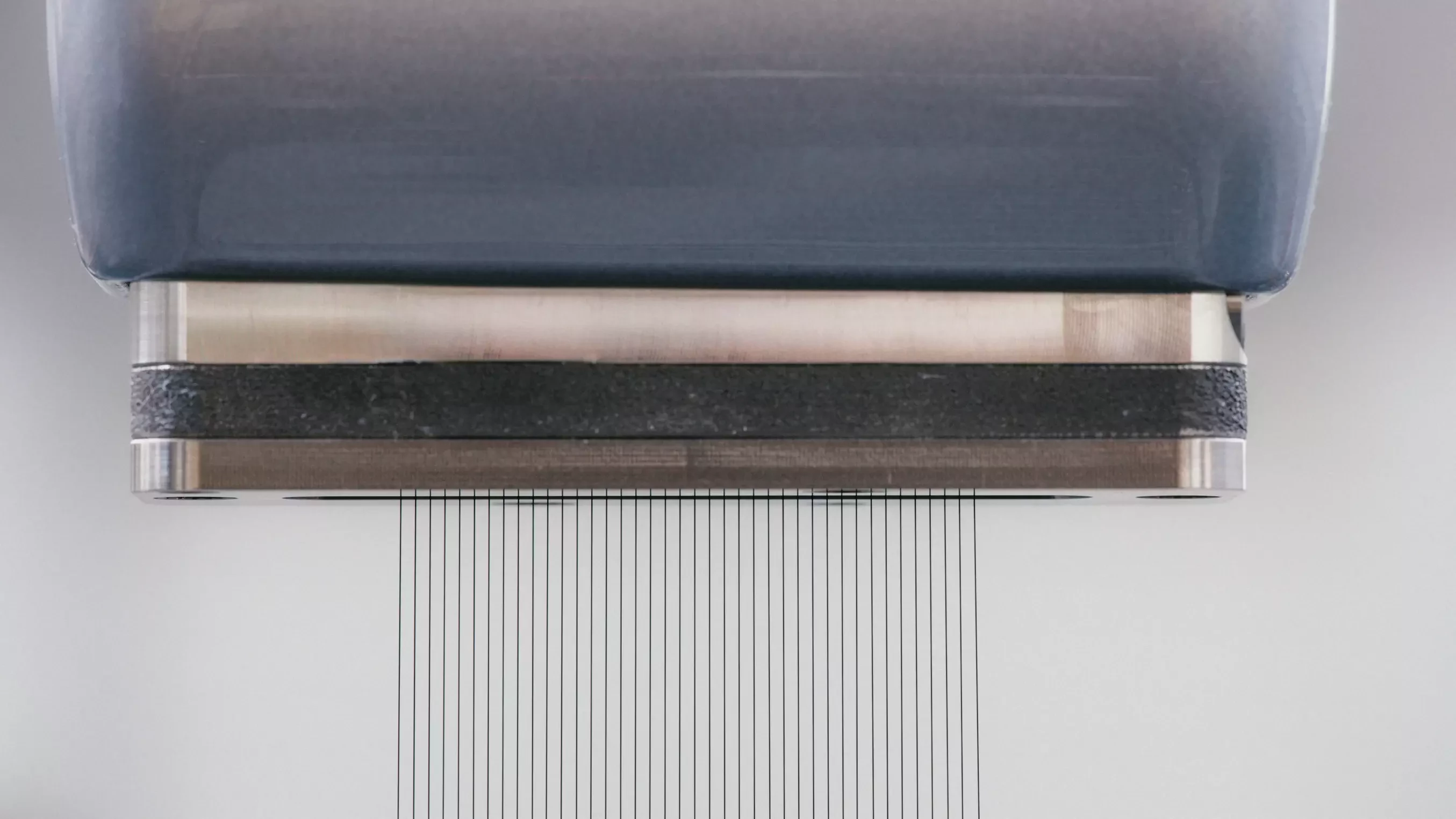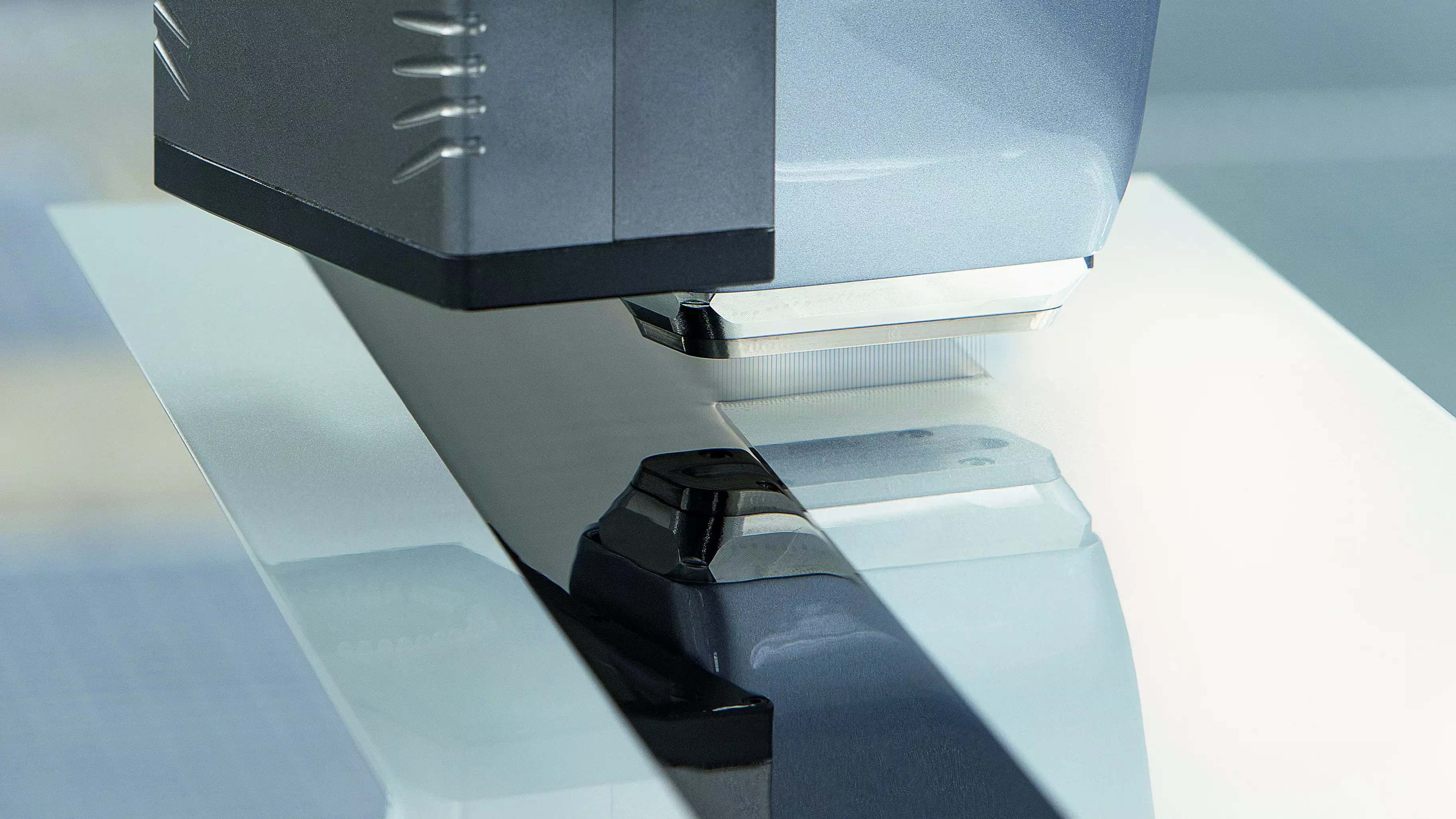In woodworking, shipbuilding, electronics manufacturing, and many other industry sectors, product and component surfaces are coated to protect them or add color. Up to now this involved a lot of effort if the coating had to be applied with high edge definition, since the surfaces either need to be manually masked or film-wrapped. There is also a lot of waste, both in terms of adhesive tape and paint lost to overspray. With the new overspray-free application set from Dürr, both of these are a thing of the past. EcoPaintJet, the innovative applicator contained in the set, is already successfully in use in automotive series production. Since 2019, the new Dürr technology has made it possible to paint car roofs in contrasting colors with no masking.
More options for painting
The EcoPaintJet applicator delivers precise coating with no overspray. This increases coating efficiency and offers companies more options when it comes to product design and the transportation of goods. Instead of adhesive film, decorative surfaces can be protected for transport through the targeted application of a spray film. This can be simply pulled off again at the destination. The technology also enables new options for the function and design of products. For example, the precise coating method means that window frames can have a weatherproof coating applied to the outside and get a decorative or differently colored application on the inside. Decorative effects can be easily realized on furniture fronts. “The overspray-free application set enables application with high edge definition, fast color changes, and a custom surface design,” says Holger Beiersdorfer, Vice President Industrial Products at Dürr, in summarizing the benefits.
No atomizer air means no overspray
The most important component in the overspray-free application set is the paint supply, combined with the cleaning and pre-painting process. The EcoPaintJet controls this using three valves. The beating heart of the applicator itself is a nozzle plate that produces several dozen parallel paint jets depending on the design. These can be activated or deactivated at any given moment to start or interrupt the coating process. Unlike painting processes involving spray guns or high-speed rotary atomizers, this process does not require any atomizer air. The overspray that must be filtered from the booth air in a complex process when using conventional methods therefore does not occur.
Another big difference compared with classic atomizers is that the width of the painting path can be adjusted by means of the applicator’s angle of application. This enables a painting path from 30 to 50 mm in width. Narrower path widths can also be produced by adapting the nozzle plate. The desired coating thickness is controlled via the applicator speed and solid content of the paint.
All the benefits in one application
Application techniques that save paint are particularly important when dealing with large surfaces. Even with airless guns or high-speed rotary atomizers, up to a fourth of the material used is lost. Recovering this paint is both time-consuming and energy-intensive, and only works with certain paint types. The so-called pouring technique, where the excess paint is collected in tanks, avoids overspray but does not permit fast color changes. Other surface design options such as applying films or decorative strips often mean a high level of manual effort.
The new Dürr technology eliminates all the disadvantages of the individual methods and makes painting faster, more cost-efficient, and more environmentally friendly in all industry sectors. “This makes our technology attractive even in scenarios where an automated painting method was not previously conceivable,” says Holger Beiersdorfer, hinting at other application possibilities.
The Austrian paint manufacturer Adler is promoting the new application technology together with Dürr, coming up with colorless and pigmented coating solutions that, in addition to the usual paint requirements, are precisely tailored to the special features of this technology. “For this visionary application technology, we developed innovative and environmentally friendly, water-based products that deliver maximum durability and at the same time visual individuality for more than just sheet material,” says Dr. Albert Rössler, CTO at Adler, impressed by the new painting technology.




